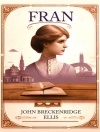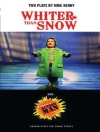John Wilkes Booth assassinated Abraham Lincoln at Ford’s Theatre in Washington, D.C. Inside that theatre today, Ranger Powell of the U.S. Parks Service takes crowds of tourists, the curious and the ghoulish through a step-by-step description of the assassination. Underneath the box where Lincoln was shot, he describes the plot of the comedy Lincoln watched that night, Our American Cousin, as being “kind of like the Beverly Hillbillies.”
Scratch the surface of any story and underneath you will find layer upon layer of fiction masquerading as fact. The play’s main character, Mark Killman—a feared but much admired director—draws inspiration from Abraham Lincoln’s assassination to stage the schizophrenia of America. He hires two actors to play Laurel and Hardy. Both are to re-enact the assassination, while he himself plays the iconic role of Abraham Lincoln as a wax figure.
The script is frequently self-referential, building on each of these “retakes” with further allusions to itself, telling the same story many times over in different voices from different points of view. Tremblay quite explicitly stages elements of literary theory with this play, including references to Jean Baudrillard’s concept of the simulacra and the “desert of the real, ” concepts first popularized by the movie The Matrix—the idea that in our post-modern world, the imitator has become more relevant than the imitated, and that the virtual worlds we construct are becoming more “real” to us than the real world.
Absurd, hilarious and haunting, Abraham Lincoln Goes to the Theatre is an unforgettable mystery that asks the question: How can we ever know who we are and what is true when the world we know is shifting beneath us? Its answer is simple: John Wilkes Booth was the first American star—the actor who kidnapped reality to transform it into theatre.
Cast of 3 men.
A propos de l’auteur
Chantal Bilodeau is a Montréal-born, New York-based playwright and translator whose work focuses on the intersection of science, policy, art, and climate change. She is the founding artistic director of the Arts & Climate Initiative (formerly The Arctic Cycle) and over the past decade has been instrumental in getting the theatre and educational communities, as well as audiences in the US and abroad, to engage in climate action through programming that includes live events, talks, publications, workshops, national and international convenings, and a worldwide-distributed theatre festival. Awards include the Woodward International Playwriting Prize as well as First Prize in the Earth Matters on Stage Ecodrama Playwrights Festival and the Uprising National Playwriting Competition. Her plays and translations have been presented in a dozen countries around the world and she had edited or co-edited three anthologies of short plays about the climate crisis. In 2019, she was named one of “8 Trailblazers Who Are Changing the Climate Conversation” by Audubon Magazine.












